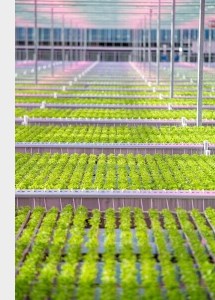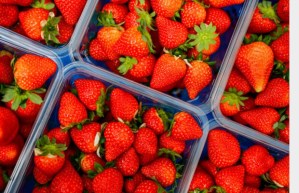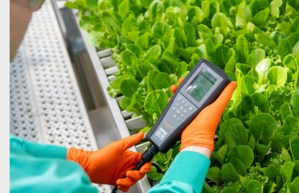Invested in Your Success: The Cox Farms Difference
From seeds to harvest to grocery store shelves, the world of produce is changing. Both climate challenges and shopper preferences are rapidly evolving, and the need for a fresh approach to farming has never been clearer. 
At Cox Farms - the parent company of Mucci Farms and BrightFarms - we’re investing in the infrastructure needed to ensure that produce is grown and distributed close to stores, helping retailers set up for long-term shopper satisfaction and loyalty. As one of the largest owners and operators of advanced greenhouses in North America, our ever-expanding geography ensures a 365-day supply of both everyday produce and specialty items to stores - fortifying a defense against modern-day farming challenges and consumer demands.
Just as this future-focused infrastructure strategy makes Cox Farms a distinctive supplier, it also equips retail partners to stand out from the competition by offering quality produce that’s grown and distributed close to their stores.
“Our objective is to enable customers to be successful in their strategies; that’s why we exist,” said Cox Farms President Steve Bradley. “We are continuing to build owned-and-operated farms to ensure that we can meet our customers’ objectives and have fresh produce on the shelf in as little as 24 hours.”
Cox Farms infrastructure investment strategy triangulates customer needs with competitive advantages that we, as farm owners and operators, are uniquely positioned to provide. We’re focused on investing in location, traceability and technology to help retail customers unlock success and prepare for the future of food.
Location, location, location
With farms and distribution centers established near retail hubs, Cox Farms helps guarantee freshness of product to nearby consumers.
“One of our goals is to ensure that our network of greenhouse and distribution operations help retailers access greenhouse produce 365 days a year,” Bradley explained. “We’re located as close as possible to minimize travel time to distribution centers and population centers, which helps give time back that can be used for shelf life at the store and at consumers’ homes.”

Geographic diversity also offers cost advantages to retailers by giving them access to product variety and ensuring that a crop disease wouldn’t affect an entire supply.
“Having a diversity of assets geographically enables us to be really sharp on price, while providing consistent quality 365 days a year” Bradley said. “Retailers need a mainstream of items at a low price point; they also want to have differentiated products on the shelf to drive consumers into their stores. We can offer both.”
Back to the source
Increasingly, the modern-day shopper is curious about where their food is grown. Retailers, too, have an interest in traceability to ensure produce quality and reliability of supply.
Information about the source of produce is something that Cox Farms is exceptionally poised to provide — not just because of our emphasis on greenhouse-grown, but the fact that Cox owns and operates farms instead of relying heavily on third-party growers. This is just one way that retailers are able to reap the benefits of Cox Farms unique structure.
“We have a unique capability in greenhouse growing that allows us to trace a product back to its origin: meaning, the state, greenhouse and even the plant it came from,” Bradley said. Bradley also noted that Cox Farms’ traceability capabilities means that teams can swiftly and surgically remove supply out of the system, if needed, resulting in limited disruption to supply.
Tech-savvy
Consistently fresh, great-tasting, shelf-stable produce from first bud to first bite. It all happens within advanced greenhouses equipped with technology that optimize taste, color, crunch and yield: such as lighting systems, climate systems and automated water systems.
At Cox Farms, we’re also exploring new specialty products to help retailers satisfy the needs of all shoppers, from budget-minded buyers to foodies seeking premium options.
“Increasing shelf life is very important to us, our retailers and consumers,” Bradley said. “Today’s high-end consumer doesn’t just want a tomato; they want the right tomato for a particular recipe. They’re willing to pay a premium price for a better tasting, flavorful tomato that is higher quality and will last at home or on the shelf. That’s one area that we’re working on where some of these specialty products fit in.”
Bradley added: “There’s also a whole other demographic that needs fresh fruits and vegetables at an affordable price point. At Cox Farms, we get the yields we need to fit all consumers’ budgets. We do this with genetics, but also with technology.”
To Bradley and his team, the question is: “How do we grow even more efficiently and ensure that we put in the right systems and processes to ensure we get produce on the shelf, and let consumers enjoy all that extra shelf life?”
Cox Farms’ investment priorities make us a one-of-a-kind partner for retail success. Quality and cost are table stakes for us, and the way we’re prioritizing the infrastructure of our business reflects our commitment to long-term partnerships that usher in a new era of produce.
“We’re investing in ways others are not,” Bradley said. “We’ll continue to invest to increase our owned-and-operated acreage. This allows us to fully control supply and ensure that our customers’ produce is protected. It enables us to fulfill all our commitments to retailers: price, quality and reliability.”
